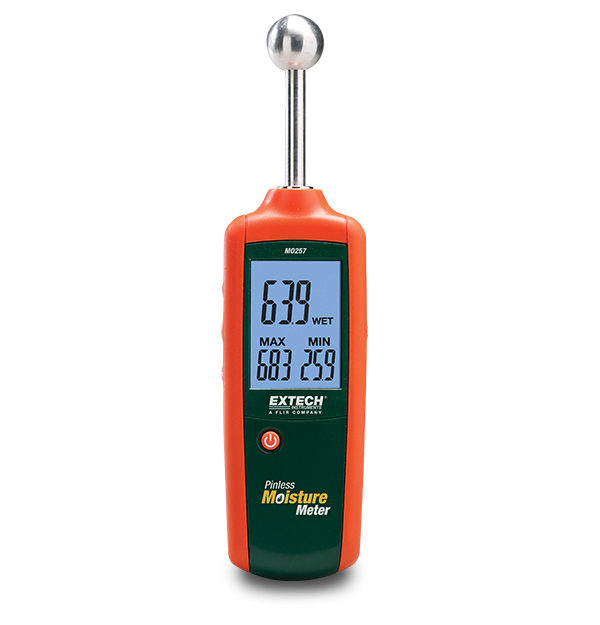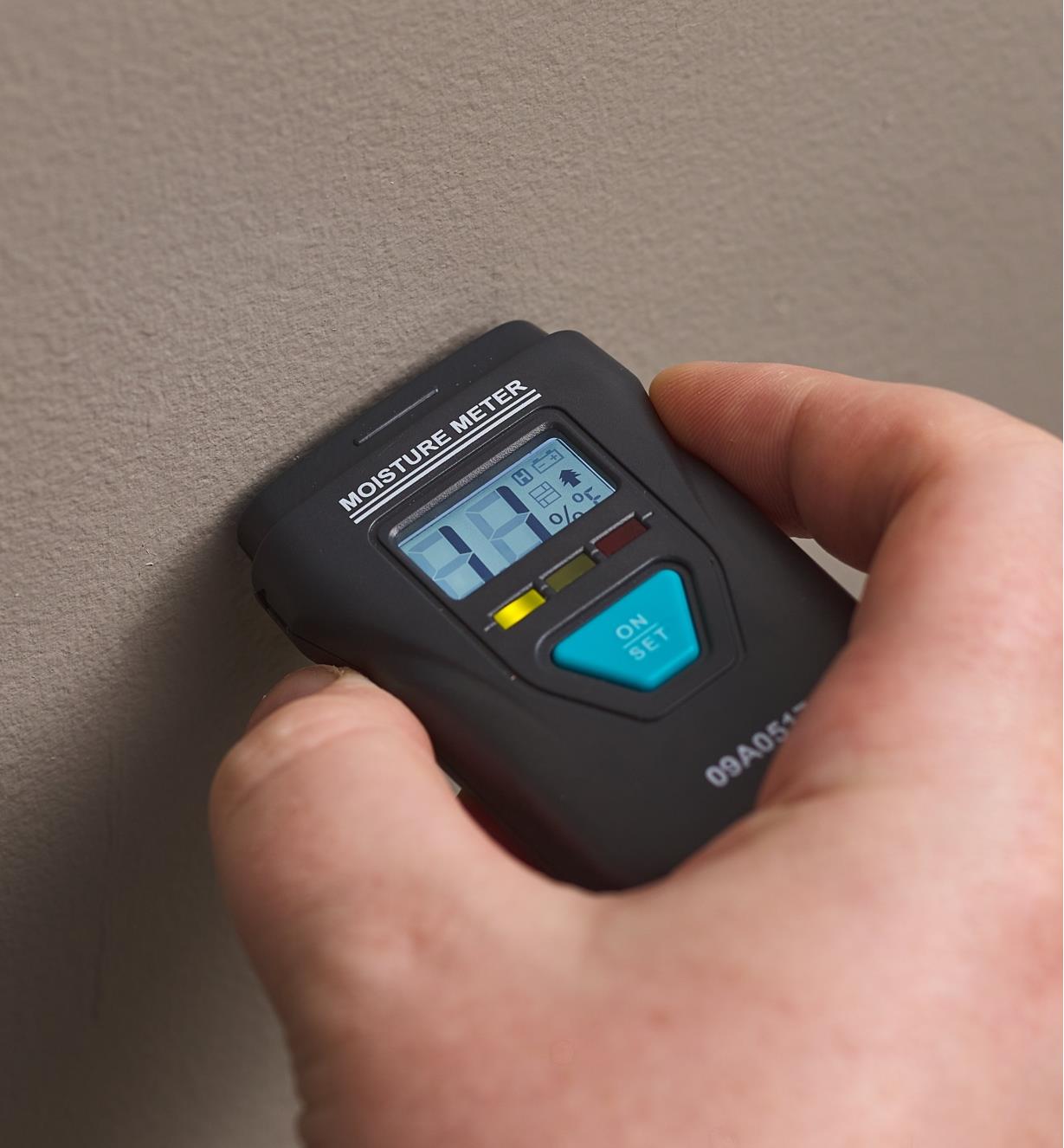How to Use a Moisture Meter to Spot Covert Water Damage in Your Residential property
How to Use a Moisture Meter to Spot Covert Water Damage in Your Residential property
Blog Article
The Ultimate Guide to Moisture Meters: A Comprehensive Review and Just How They Can Save You Money
In the world of structure maintenance, construction, and various sectors, the relevance of precisely measuring dampness degrees can not be overstated. Dampness meters work as crucial devices in finding and checking moisture material in products, helping in avoiding costly problems and making sure the top quality of products. Understanding the subtleties of various sorts of dampness meters, their applications, and the possible cost-saving advantages they provide can be a game-changer for specialists and businesses alike. Finding how these devices can not only simplify processes yet also add to monetary cost savings is a trip worth getting started on.
Sorts Of Wetness Meters
Various sorts of wetness meters are available for various applications in numerous sectors. One usual type is the pin-type moisture meter, which gauges the electric resistance between 2 pins inserted right into a material. This type appropriates for wood, drywall, and various other structure products. Pinless dampness meters, on the other hand, usage electro-magnetic sensor plates to scan a larger area without triggering damage to the material's surface area. Moisture Meter. These meters are perfect for swiftly analyzing dampness degrees in huge locations such as walls and floorings.

Infrared dampness meters measure the thermal residential or commercial properties of a product to establish its moisture web content non-invasively, making them helpful for applications where pin or pinless meters may not be appropriate. Understanding the various kinds of moisture meters offered can aid industries choose the most appropriate tool for their specific dampness measurement demands.

Advantages of Making Use Of Moisture Meters
Wetness meters provide invaluable advantages in precisely monitoring and examining moisture levels in varied products and settings. One of the primary benefits of utilizing wetness meters is the avoidance of potential damage triggered by excess wetness.
In addition, making use of dampness meters can bring about increased energy efficiency. By determining locations with high wetness degrees, such as leakages or inadequate insulation, changes can be made to boost power conservation and decrease energy expenses. In agricultural settings, wetness meters play an essential function in optimizing plant yields by making it possible for farmers to check dirt dampness levels and make educated irrigation decisions. Generally, the benefits of utilizing wetness meters cover across different sectors, supplying affordable solutions and promoting far better top quality control practices.
How to Pick the Right Wetness Meter
Choosing the proper wetness meter involves taking into consideration crucial variables such as material compatibility, dimension range, and calibration accuracy. When picking a wetness meter, it's important to make certain that the meter appropriates for the details material you will certainly be screening. Different products have varying electrical buildings that can affect dampness readings, so picking a meter created for your official statement material is crucial for exact results. In addition, consider the dimension variety of the moisture meter. Make certain that the meter can discover wetness degrees within the range needed for your applications. Calibration precision is another important aspect to bear in mind. Decide for a wetness meter with reputable calibration to make sure regular and precise readings. Some meters might require regular calibration adjustments, so recognizing the calibration process is essential. By very carefully examining these factors, you can choose a dampness meter that fulfills your needs and offers precise moisture measurements for your tasks.
Correct Strategies for Wetness Meter Usage

Expense Cost Savings With Wetness Meter Applications
Just how can the calculated application of wetness meters lead to considerable cost financial savings throughout various sectors? In the farming sector, dampness meters aid in identifying the optimal time for gathering plants, protecting against excess or over-drying moisture that can influence the final item's high quality.
Likewise, in construction, dampness meters aid stop pricey damages by finding moisture levels in structure materials, such as wood or concrete, which can lead to architectural problems if not attended to quickly. By determining issue locations early, specialists can take corrective actions to avoid comprehensive fixings or replacements, inevitably saving time and money.
Furthermore, in the food handling sector, dampness meters are vital for keeping webpage track of product high quality and guaranteeing compliance with security regulations. By properly determining dampness content in food, suppliers can avoid perishing, maintain freshness, and lower waste, leading to considerable price financial savings. In general, the critical application of wetness meters is a useful investment that can result in considerable expense reductions and boosted performance across various sectors.
Conclusion
In verdict, wetness meters are important tools for detecting and determining moisture degrees in different materials. By using the best moisture meter and following correct methods, users can successfully avoid pricey damages created by excess moisture.
Dampness meters serve as indispensable tools in detecting and checking moisture content in products, aiding in stopping costly damages and making certain the quality of items. Infrared moisture meters determine the thermal homes of a product to determine its moisture company website material non-invasively, making them valuable for applications where pin or pinless meters may not be ideal.Dampness meters offer vital advantages in accurately examining and keeping an eye on dampness degrees in diverse materials and settings. In farming setups, moisture meters play a vital role in enhancing plant returns by making it possible for farmers to monitor soil dampness levels and make informed irrigation choices.In verdict, dampness meters are valuable tools for determining and finding dampness degrees in numerous materials.
Report this page